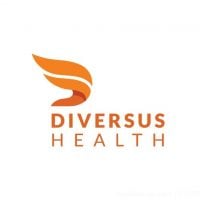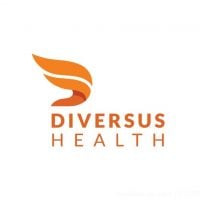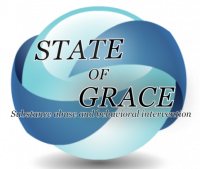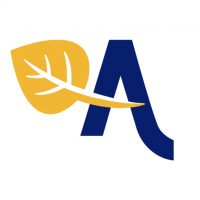
Crossroads Turning Points - Baltimore Campus
Drug Rehab Center in Pueblo, Colorado
- Opioid Addiction
- Dual Diagnosis
- Drug Addiction
- Alcoholism
Crossroads Turning Points - Baltimore Campus offers a range of addiction treatment services, including medical detox, residential rehab, and outpatient programs, as well as counseling, psychiatric services, and aftercare programs, with accreditations from The Joint Commission and CARF International.
About Crossroads Turning Points - Baltimore Campus in Colorado
Crossroads Turning Points - Baltimore Campus is an Addiction Treatment Facility located in Pueblo, Colorado. Founded in 1979, this facility specializes in treating individuals suffering from alcoholism, dual diagnosis, opioid addiction, and drug addiction. With a comprehensive approach to recovery, Crossroads Turning Points offers a range of treatment programs, including drug rehab and dual-diagnosis services. The facility is accredited by SAMHSA and holds a state license, ensuring that they meet the highest standards of quality and professionalism. Affiliated with Crossroads Turning Points, this campus provides individuals with the necessary support and resources to overcome addiction and achieve lasting recovery.
At Crossroads Turning Points - Baltimore Campus, individuals struggling with addiction and substance abuse can find a wide range of services tailored to their specific needs. The facility offers drug rehab programs, providing a structured and supportive environment for individuals to detox, address the underlying causes of their addiction, and develop healthy coping mechanisms. Additionally, Crossroads Turning Points offers dual-diagnosis services, recognizing the interconnected nature of mental health and addiction. Through comprehensive assessments and personalized treatment plans, the facility aims to address both aspects of individuals' conditions for more effective and sustainable recovery. With inpatient levels of care, individuals can receive intensive treatment and support while residing at the facility, ensuring a focused and supervised recovery process.
Genders
Ages
Modality
Additional
Accreditations
State License
SAMHSA
Conditions and Issues Treated
Treatment for opioid addiction is best made with the help of medical professionals who are experienced in dealing with these types of drugs. This treatment can involve medications, exercise, behavioral therapy, and counseling sessions. It is important to note that the effectiveness of treatments for opioid addiction vary, so it is vital to research which treatment options are suitable for each individual.
Many people who struggle with opioid addiction need to attend specific programs like methadone , Suboxone or Vivitrol clinics.
These types of programs will provide the patient with legal, prescription medications that can help them overcome their cravings for illegal opioids like heroin or fentanyl . If the patient has a chronic condition like Hepatitis C, they must undergo treatment before they can begin taking these medications.
Individuals who are addicted to drugs and/or alcohol often have one or more co-occurring mental health disorders. Addressing both the addiction and the mental health problems at facilities like Crossroads Turning Points - Baltimore Campus can be very beneficial for these individuals.
Common mental health conditions that often co-occur with addiction include:
- Anxiety Disorders – People with drug and alcohol problems often suffer from anxiety disorders such as panic disorder, obsessive-compulsive disorder, social anxiety disorder, and generalized anxiety disorder.
- Depression – One of the most common mental illnesses co-occurring with addiction is major depressive disorder.
- Attention-deficit hyperactivity disorder (ADHD) – Many people with drug and alcohol problems also suffer from ADHD.
- Bipolar Disorder – People with bipolar disorder are more likely to suffer from drug and alcohol problems than the general population, and vice versa.
Levels of Care Offered
This center offers a variety of custom treatment tailored to individual recovery. Currently available are Drug Rehab, Dual-Diagnosis, Inpatient, with additional therapies available as listed below.
Inpatient recovery offers individual therapy, groups, and family therapy. The length of inpatient addiction treatment depends on the addict and their addiction. Inpatient rehab is a costly drug treatment, costing anywhere from $30k- to $60k. However, insurance often offers help in covering these costs.
Therapies & Programs
Individual therapy is ideal for addicts who want to focus on themselves. It can also be helpful for those whose withdrawal symptoms are exacerbated by the presence of other people.
Benefits of individual therapy are:
- Access to a personalized treatment plan that focuses on the individual needs of the addict
- More privacy during treatment sessions
- Better personal development through introspection
- Increased self-awareness regarding addictive tendencies in order to avoid relapse
- Greater potential for a long-term recovery plan
- Receiving professional advice and detox assistance from medical staff
Family therapy can help you and your family deal with old issues that may trigger substance abuse. The idea behind family therapy for drug addiction is that you are never fully healed from substance abuse until you’ve healed your relationship with your family, too. To get sober, you need to find a different way to cope with the pain in your life.
This is when a group of people in various stages of recovery meet up and discuss their experiences, triggers, successes, failures, and even alternative therapies! Unlike support groups where everyone already knows each other, group therapy is conducted along side outpatient or inpatient treatment at Crossroads Turning Points - Baltimore Campus.
Trauma therapy is a clinical process that helps individuals deal with mental stress often caused by traumatic events. The therapist helps the person identify, understand and work through the problem. This is done with the help of talking about it in group or one-on-one counseling sessions.
Therapists use relaxation, role-playing, art, and music to help the person open up about what is bothering them. Some examples include:
- Talking about the traumatic event and how it affected them.
- Helping those who have PTSD to deal with their nightmares and recurring memories.
- Working with individuals to resolve the issues triggering the stress, whether seeing someone who reminds them of what happened or feeling helpless.
The individual is also encouraged to help others that are struggling with similar problems. This often helps them feel empowered and gives them hope.
Trauma therapy is not for everyone; it is usually reserved for people who have recently experienced a traumatic event and struggle to get over it. It is generally done for children, teenage victims of sexual assault, and war veterans.
CBT is a psychotherapy approach and method. [ws-nap-name] people to examine how their thoughts, including habitual harmful and inaccurate thinking, affect their actions. CBT is based on the idea that rigid, inflexible thinking leads to poor stress management, which leads to emotional distress.
Similarly, CBT helps people identify and change negative behaviors. It makes you question your perceptions and ask if they are realistic. CBT asks people to examine their behaviors and emotional responses and how they affect their lives. CBT aims to change people’s thinking and behavior to lead a more balanced and healthy life.
Moreover, CBT has been shown to reduce anxiety disorders, depression, and symptoms associated with harmful thoughts or actions.
Payment Options Accepted
For specific insurance or payment methods please contact us.
Crossroads Turning Points Associated Centers
Discover treatment facilities under the same provider.
- Crossroads Turning Points - Pueblo in Pueblo, CO
- Crossroads Turning Points - Baltimore Avenue in Pueblo, CO
- Crossroads Turning Points - Drug Free Communities in Lamar, CO
- Crossroads Turning Points - Bonforte Boulevard in Pueblo, CO
- Crossroads Turning Points - Monte Vista in Monte Vista, CO
Learn More About Crossroads Turning Points Centers
Additional Details
Specifics, location, and helpful extra information.
Pueblo, Colorado 81008 Phone Number(719) 545-1181 Meta DetailsUpdated November 25, 2023
Staff Verified
Crossroads Turning Points - Baltimore Campus Patient Reviews
There are no reviews yet. Be the first one to write one.

Location
3470 Baltimore Avenue
Pueblo, CO 81008
(719) 545-1181
Accreditations


Crossroads Turning Points
Language
- About Crossroads Turning Points - Baltimore Campus in Colorado
- Accreditations
- Conditions and Issues Treated
- Levels of Care Offered
- Therapies & Programs
- Payment Options Accepted
- Crossroads Turning Points Associated Centers
- Additional Details
- Crossroads Turning Points - Baltimore Campus Patient Reviews
Pueblo, Colorado Addiction Information
The Centennial State has slipped to a ranking of 12th in the country for drug abuse. Each year around 24% of the state's population uses illegal drugs while nearly 5% of its population abuses alcohol. Substance-related deaths in Colorado were responsible for 15.12% between 2008 and 2017. Fortunately, Colorado drug and alcohol addiction treatment are available to help a person overcome addiction.
In Pueblo County specifically, there were over 2,600 individuals with a substance use disorder. Over 1,500 drug overdose deaths happened in Colorado in 2016, of which over 1,000 were due to opioids. The majority of these cases involved people of young age. Treatment for drug addiction may include behavioral therapy, medications, or a combination of both. Medications can help individuals with addictions to opioids stabilize their condition
Treatment in Nearby Cities
- Louisville, CO (118.6 mi.)
- Black Hawk, CO (112.9 mi.)
- Aurora, CO (98.9 mi.)
- Centennial, CO (89.1 mi.)
- Fort Lupton, CO (123.3 mi.)
Centers near Crossroads Turning Points - Baltimore Campus



The facility name, logo and brand are the property and registered trademarks of Crossroads Turning Points - Baltimore Campus, and are being used for identification and informational purposes only. Use of these names, logos and brands shall not imply endorsement. RehabNow.org is not affiliated with or sponsored by Crossroads Turning Points - Baltimore Campus.


